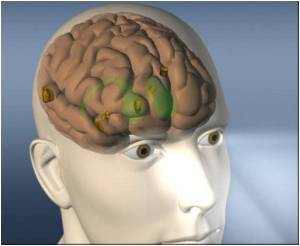According to a report, the lipidation states in certain proteins in the brain that are related to the development of Alzheimer disease appear to differ depending on genotype and cognitive diseases.

Angela J. Hanson, M.D., Veterans Affairs Puget Sound Health Care System and the University of Washington, Seattle, and colleagues studied 20 older adults with normal cognition (average age 69 years) and 27 older adults with amnestic mild cognitive impairment (average age 67 years).
The patients were randomized to a diet high in saturated fat content (45 percent energy from fat, greater than 25 percent saturated fat) with a high glycemic index or a diet low in saturated fat content (25 percent of energy from fat, less than 7 percent saturated fat) with a low glycemic index. The main outcomes the researchers measured were lipid depleted (LD) Αβ42 and Αβ40 and ApoE in cerebrospinal fluid.
Study results indicate that baseline levels of LD Αβ were greater for adults with mild cognitive impairment compared with adults with normal cognition. The authors also note that these findings were more apparent in adults with mild cognitive impairment and the Æ4 allele (a risk factor for AD), who had higher LD apolipoprotein E levels irrespective of cognitive diagnosis. Study results indicate that the diet low in saturated fat tended to decrease LD Αβ levels, whereas the diet high in saturated fat increased these fractions.
The authors note the data from their small pilot study need to be replicated in a larger sample before any firm conclusions can be drawn.
"Overall, these results suggest that the lipidation states of apolipoproteins and amyloid peptides might play a role in AD pathological processes and are influenced by APOE genotype and diet," the study concludes.
Advertisement















